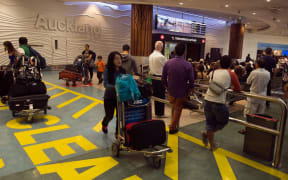Yesterday New Zealand marked another Labour Day, but what's happened to the battle for an eight-hour working day that started it all?

About two-thirds of New Zealanders who work are said to do so for at least 40 hours a week. Photo: 123RF
New Zealand's first strike in 1841 was sparked by London-born carpenter Samuel Parnell who refused to work more than eight hours a day. Soon tradespeople and unions echoed his calls.
Fifty years later, Parliament legislated to make Labour Day a public holiday.
The day became an opportunity to bring labour issues to the fore, and unions are still campaigning over working hours, with one reaching a recent agreement on minimum hours for fast-food workers, and junior doctors on strike this month over the number of days and nights they work in a row.
Industrial relations specialist Stephen Blumenfeld said while the eight-hour day still set a standard, it was often not adhered to in the workplace.
"Outside of the United States, New Zealanders tend to work the longest hours amongst OECD countries."
About two-thirds of New Zealanders who worked, did so for at least 40 hours a week, he said.
Most other industrialised countries limited the hours someone could work, by paying time-and-a-half for overtime, but Mr Blemenfeld said the same rules did not apply in New Zealand.
"That also feeds into the culture in the workplace and the need for workers to actually work more hours."
Mr Blumenfeld said labour laws needed to offer more protection to workers.
Unite Union national secretary Gerard Hehir said Labour Day's original goal to provide workers with fair and secure hours was becoming more relevant.
Two weeks ago Unite secured a collective agreement with fast-food giant Restaurant Brands to end zero hour contracts.
Mr Hehir said as businesses moved towards 24/7 operations they wanted roster flexibility, which undermined secured hours.
"It also gives the employer enormous power over that worker.
"If your wages can be cut in half in any week without any reason, without any justification, that gives you pause for thought before you're going to complain, whether it's legitimate or not, against your employer."

Employers and Manufacturers Association chief executive Kim Campbell said working conditions in New Zealand were the best they had ever been. Photo: RNZ / Todd Niall
Securing minimum hours for workers had been a major win for labour rights, Mr Hehir said.
Employers and Manufacturers Association chief executive Kim Campbell said working conditions in New Zealand were better than they had ever been.
The eight-hour day acted as a bottom line, and people could choose to adjust their hours around it, he said.
"If you look at executive types ... the eight hour means absolutely nothing, it depends on what has to be done."
Groups like the junior doctors, who went on strike last week to protest long work hours, were just looking for more money, he said.
But Mr Hehir said poor wages, increasing living costs and a competitive job market, made life difficult for many people.
"Perhaps you shouldn't expect to work 9 to 5, Monday to Friday, but I think a lot of people are unaware of just how many low-paid people work really unsociable hours, long hours just to keep their heads above water."





